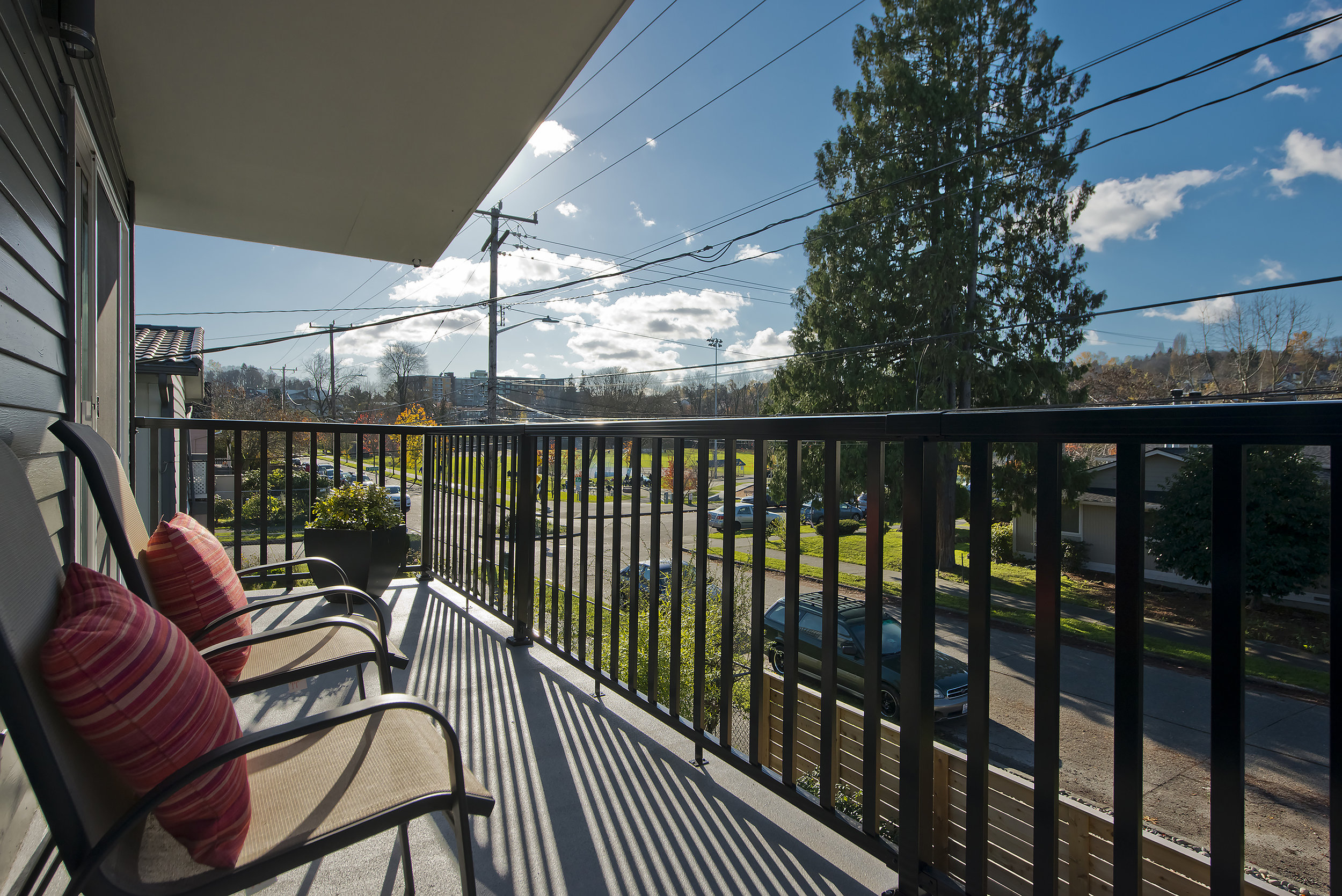As potential buyers are having to make lightning-quick decisions based on limited visits or online marketing materials alone, these fixes are no-brainers that buyers will love.
Homesellers can spend a ton of money getting a home ready to go on the market, but they don’t necessarily have to. Here are 10 easy ways sellers can update a home’s look without spending much cash.
1. Declutter (and clean!)
Most people have too much stuff. Your clients are moving anyway, so it’s never too early for them to start paring down kids’ toys, over-the-hill garden equipment and supplies, and a mishmash of garden ornaments and random potted plants.
They can clear out overstuffed closets and their full-to-the-rafters garage immediately. Before the property goes on the market, they can scrub everything until it shines, and the house smells as clean as it looks.
2. Amp up the house numbers
Not finding a property because the address is hiding behind overgrown shrubs and the original house numbers are two inches tall is every agent’s pet peeve. And it leaves a horrible first impression with buyers, too. So, encourage your sellers to install new high-style, high-visibility house numbers. And make sure there’s plenty of light shining on that sharp new address as well.
3. Make a great first impression
There’s a reason “you only have one chance to make a good first impression” has achieved maxim status. Agents estimate buyers give a prospective home about 10 seconds before deciding if they love it or hate it.
That’s why curb appeal — the appearance of the front yard and entrance — and the first impression of the interior from the entry are crucial. An afternoon spent banishing peeling spots on the wall and trim paint inside and out, refreshing the front door, and replacing fading plantings, fixtures, and accessories (like doormats) is a low-cost, high-impact move.
4. Upgrade the lighting
From the porch light to the dining room chandelier and bathroom vanity strips, if sellers haven’t replaced fixtures recently, old fixtures are making their home look dated and uninspiring — especially if they aren’t well-coordinated.
Simply replacing builder-grade, flush-mounted ceiling lights (aka “boob” lights) with recessed LED cans and makeup-mirror type bathroom strip lights with stylish sconces is a game-changer. And an eye-catching chandelier elevates even a modest dining area. So, such changes deliver a satisfying amount of bang for the buck.
5. Install new outlet covers and switch plates
Like lighting, outlet covers and switch plates can date a home badly. But changing them out is easy and economical. So, there’s no reason to stick with builder-grade ivory plastic, paint-caked covers or outdated metal plates.
If your sellers are having trouble selecting suitable substitutes, you or your stager can lend a hand. You’re shooting for something that’s updated yet compatible with varied design styles.
6. Nix dated window and wall treatments
Elaborate draperies, dated blinds, faux finishes and “accent walls” rarely represent buyers’ notions of “move-in-ready” homes. Replacing fussy window coverings with the far simpler curtains and blinds favored today is a relatively easy task.
Painting over dated finishes might take a little more time, but it’s worth it to keep prospective buyers from taking one look inside and making a run for it.
7. Think mirrors
Baths and kitchens sell houses. So, sellers should plan to update these spaces. They can frame builder-grade bath mirrors or replace them with their more interesting hanging counterparts.
But why have sellers stop there? Mirrors add light and sparkle to living spaces and even bedrooms. Advise your sellers to search online and at brick-and-mortar home accessory retailers to see a broad selection of styles and prices.
8. Update the hardware
Hardware finishes ebb and flow in popularity, just like other design components. So, replacing out-of-favor hardware — from curtain roads to door hinges and knobs — is a worthwhile update. Nowhere is that more true than in kitchens and baths, where door and drawer pulls — or the lack of them — can scream so last century.
Replacing them is simple if sellers choose pulls that conform to the existing installation pattern, and hinges are hidden, so those don’t have to be replaced, too. But even if the seller isn’t handy and has to hire someone to tackle the job, it will be an economic update that pays significant style dividends.
9. Refresh the backsplash
Once the hardware is updated, kitchens benefit from reviving backsplashes that have seen better days. Maybe sellers will agree to install beadboard or new tile in a hip pattern. Or, they can do something as simple as cleaning and painting the backsplash in an arresting color. Whatever the chosen material, a shiny new backsplash makes a great impression when buyers first walk into a home’s kitchen.
10. Replace dated or mismatched appliances
Appliances fail at varying rates and get replaced with models in the newest “in” finish. So, it’s possible to walk into a seller’s kitchen and find the dishwasher, stove, range hood and refrigerator in varied finishes.
They may work, but mismatched appliances do not sell houses. Replacing everything with new models in matching finishes is not inexpensive. But appliance and home improvement stores often offer package deals and free financing over generous timeframes. So, sellers who plan to go on the market relatively soon can consider this a cost of sale that gets paid off at closing.
Naturally, there are other projects sellers might decide to undertake to maximize their selling price and minimize time on the market. Replacing beat-up flooring and addressing major buyer turnoffs like tile countertops leap to mind as fixes in that category. Before undertaking major updates like that, sellers might need time to think about how to do them best — and pay for them.
But these 10 easy updates are no-brainers. Prospective buyers will appreciate them. Even if the homeowners change their minds about selling, they’ll get to live in an updated house that cost little beyond elbow grease. And, that’s a win-win no matter what happens.
SOURCE: Inman












